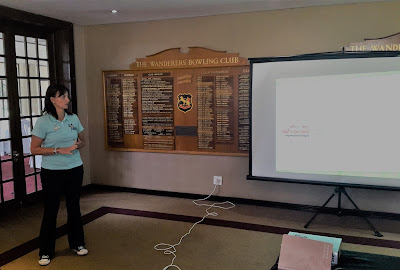In January 1946, just months after the end of World War II, The Rotary Foundation embarked on a mission to help heal the wounds from the conflict. The Foundation decided to nurture an understanding of other nations and cultures by providing scholarships to promising graduate students. The inaugural class began its year of postgraduate study abroad in the fall of 1947. That class was funded through donations to a memorial fund set up to honor Rotary founder Paul Harris, who had died earlier in the year. They were the first of more than 42,000 collegians to be granted scholarships by the Foundation over the following seven decades.
The only surviving member of the 1947-48 class of scholars is Renán Domínguez, who had been nudged by his father, a charter member of the Rotary Club of Mérida, Mexico, to apply for the program as he was finishing his bachelor’s degree at the University of Illinois at Urbana-Champaign. He studied engineering, though he was confounded by American football and the size – and furnishings – of dorm rooms. “Every-body wonders how we can sleep on hammocks without falling off, and I wonder how everybody here manages not to fall out of the beds, which are less safe,” he mused to The Rotarian in a March 1948 article.
A sprightly 90, Domínguez now resides with his wife, Teresita, in Concord, Calif., driving an hour each way to attend meetings of the Rotary Club of South San Francisco. In 2013 the club began a scholarship bearing his name to help cover expenses for a high school exchange with the Rotary Club of Kishiwada in Japan. “He’ll latch on to a need and he’ll push it along,” says John Henry Fullen of his club’s senior member. “He does it in a friendly, firm, and kind way. He’s part of the lifeblood of the club.”
As a structural engineer, Domínguez worked with architects to design buildings so they don’t fall down, especially critical in the earthquake-prone Bay Area. Besides work on Rotary Plaza, a 180-plus-unit complex created and still managed by the club for low-income seniors, another crown in his career was consulting on the construction of the auditorium at the Marin County Civic Center, an enduringly futuristic Frank Lloyd Wright project. Solid footings, he says, provide the support for fanciful flourishes in concrete and steel, but service to others – as embodied by Rotary – is an undergirding of a great life. He shared his memories of his Rotary scholarship year at Illinois with The Rotarian.
THE ROTARIAN: What impressions did you have of the people you met?
DOMÍNGUEZ: What struck me was the friendliness of the people. I joined a couple of groups and I was accepted without any friction. My peers understood that I had a little problem with English, and the teachers would help me practice. Most people that I got acquainted with were very friendly to me. I remember a couple of middle-aged people, a husband and wife that almost took me in like a nephew, even a son; they would invite me to their place and would help me with English. I appreciated that very much.
TR: What was the highlight of your scholarship year?
DOMÍNGUEZ: My fondest recollection was the time I spent at the United Nations. Prior to finishing the school year, I received a note from Rotary International suggesting that I could also participate in an internship with the United Nations at Lake Success, N.Y. I was an assistant in the water supply segment of the UN, where they were studying the dams around the world.
There were around 50 interns; they came from Egypt, Italy, Argentina, India, and elsewhere. We would have parties and get-togethers. We were able to have conversations about what was happening around the world. It was a very intriguing time.
TR: How did your scholarship influence the rest of your life?
DOMÍNGUEZ: What I got from that experience is a feeling of worldwide fellowship. I could not think of anything against any culture. I met people from many countries and I had no animosity toward anyone, and none of them had any animosity toward me.
When I returned to Mérida in 1948, my father asked me to become a Rotarian. Then when my family moved to Decatur, Ill., in 1955, I joined the Rotary Club of Decatur right away, until we moved to California in 1957.
My father was a pillar of Rotary, so Rotary’s principles were always there for me. The Four-Way Test and the purpose of Rotary influenced my professional career. It brought me success. The Rotary scholarship was the final inspiration in me becoming a life-long Rotarian.
TR: Can you offer any secrets for a long life?
DOMÍNGUEZ: We keep a positive attitude. We have been studying with doctors and nutritionists that teach what the body needs to stay healthy. And the other secret is being involved in community and family. Most people prefer to die before 90. No, I want to live as long as I can to do things to benefit as many people as I can.










